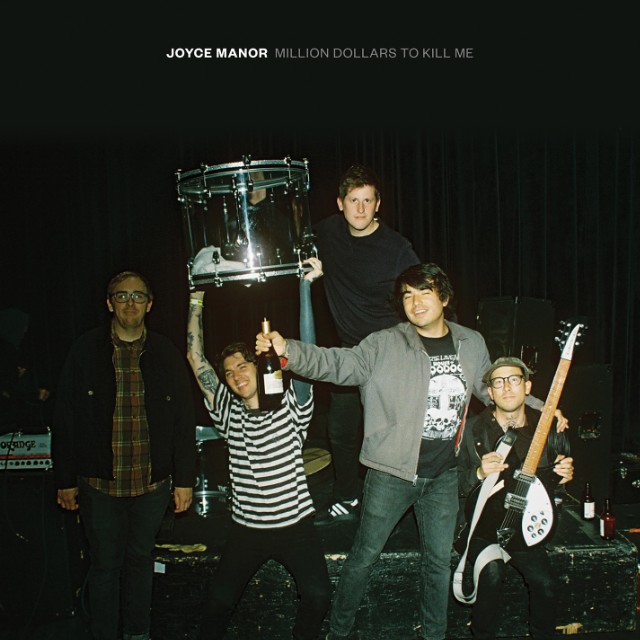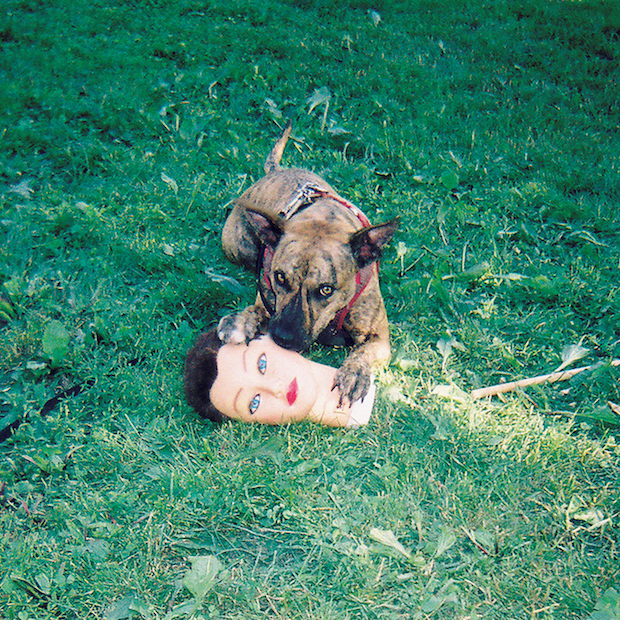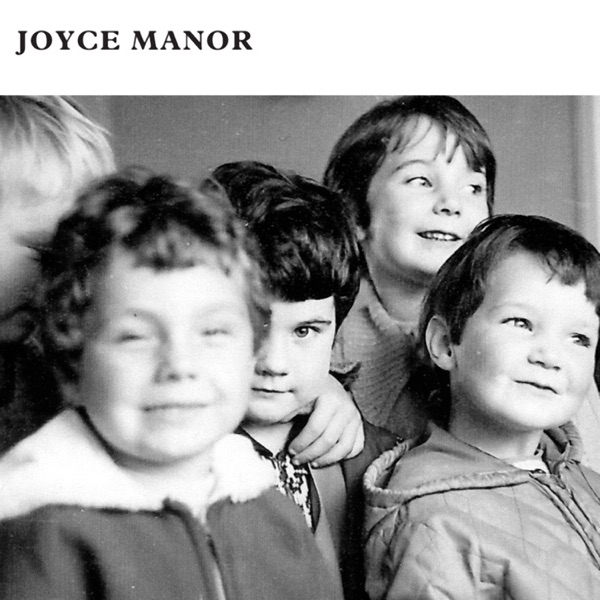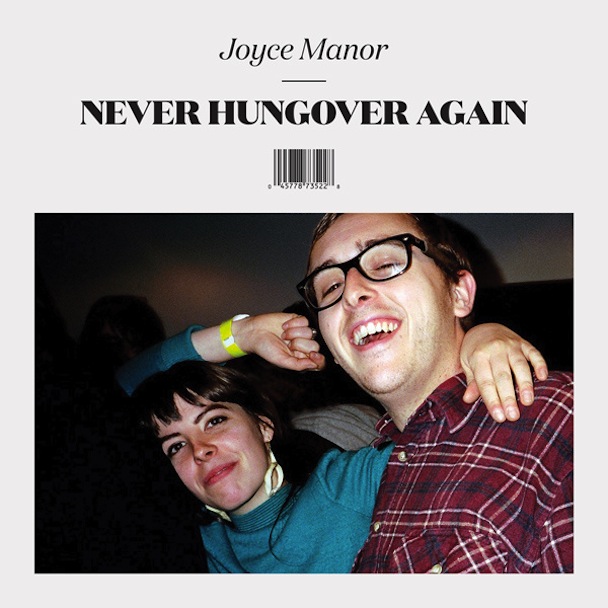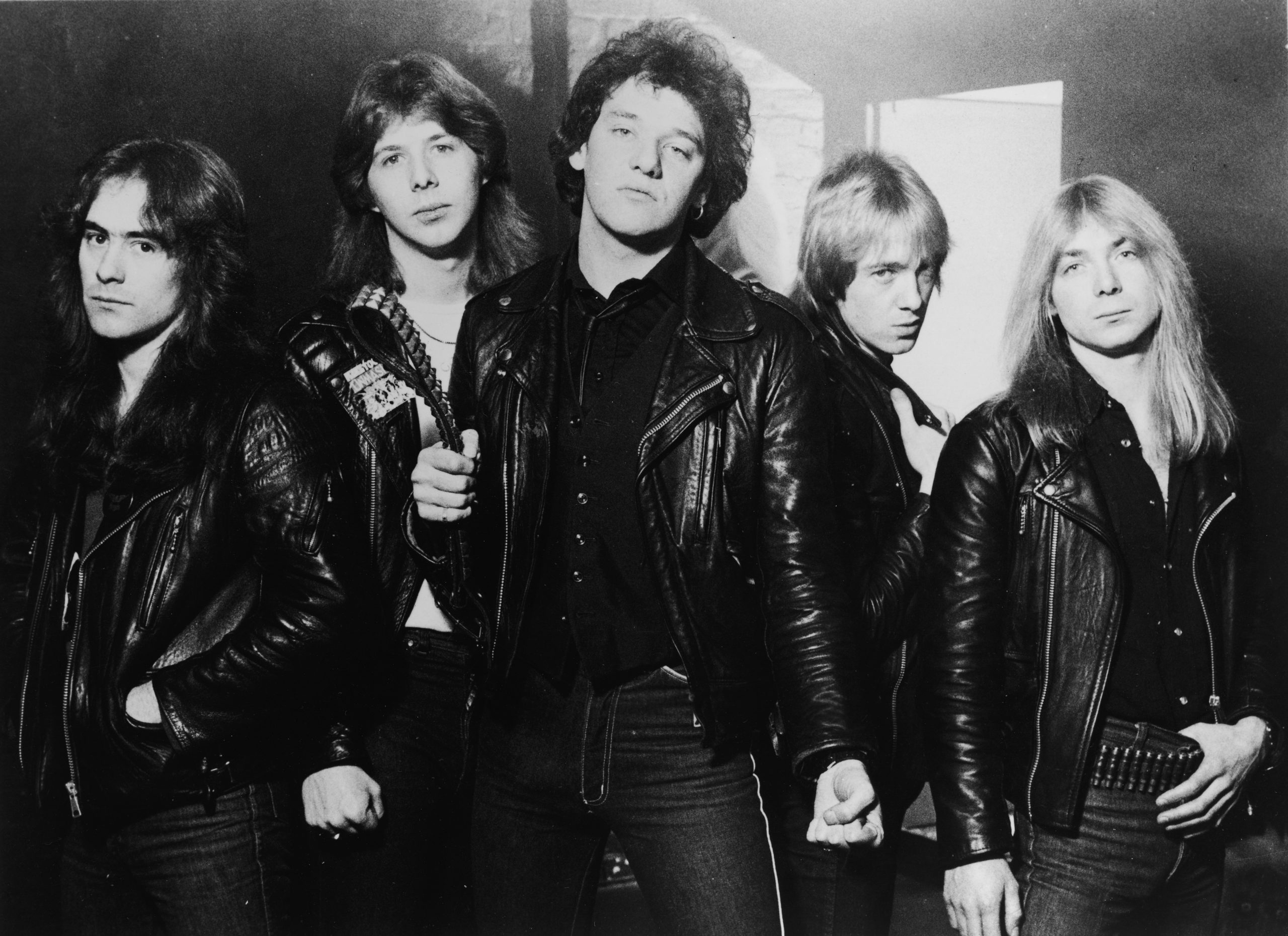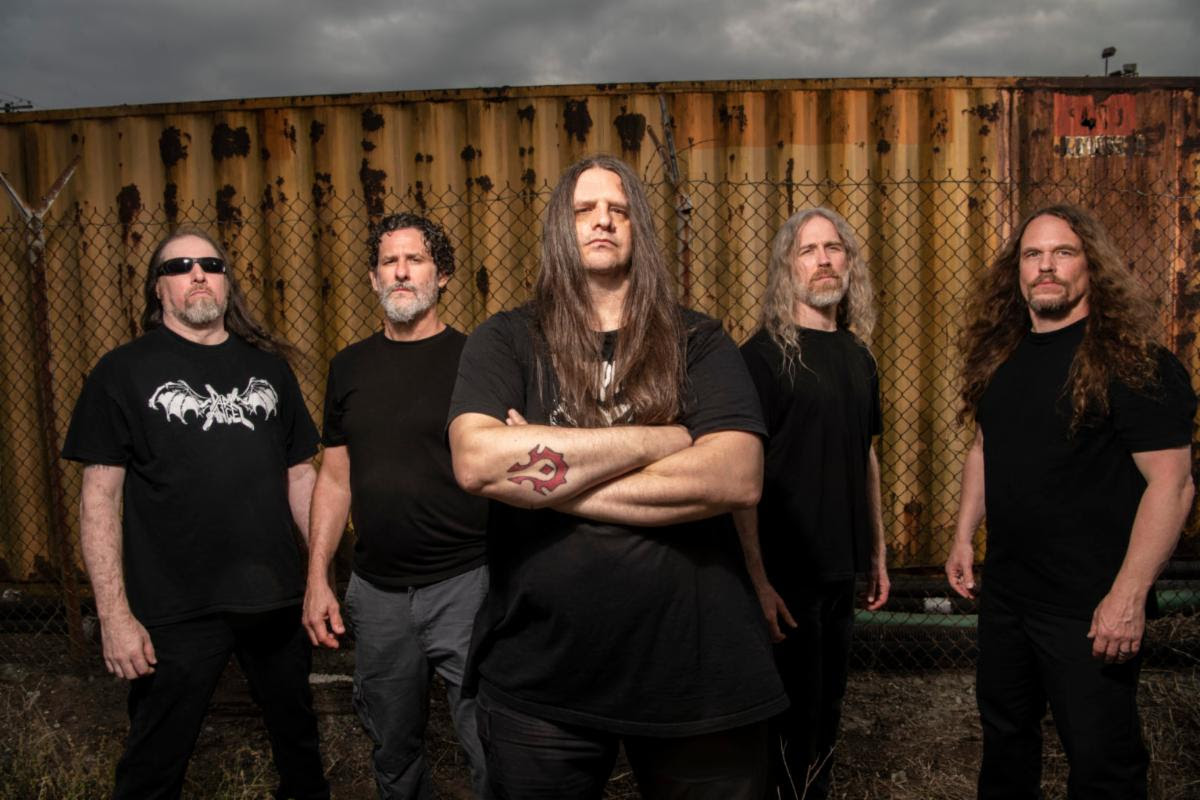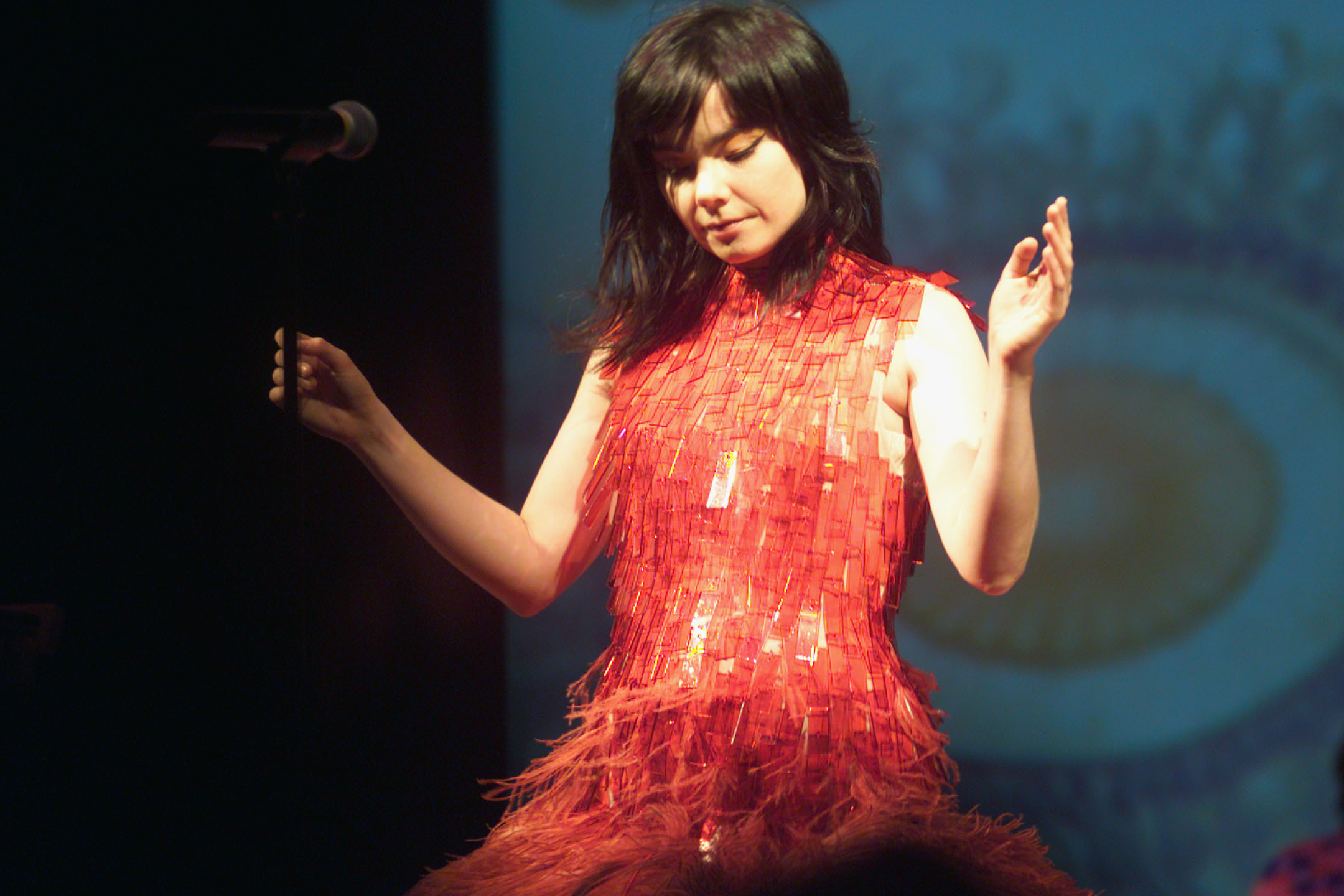There's no band like Joyce Manor. Pulling from influences like Weezer, the Smiths, and Guided By Voices, the Torrance, California trio developed their own unconventional, invigorating, ultra-concise approach to pop-rock. Though they tour with mainly Warped Tour-era bands like Citizen and The Story So Far and are often credited with kickstarting the emo revival movement alongside acts like Title Fight and Tigers Jaw (Joyce Manor and Tigers Jaw recently covered each other's cult hits), many fans consider them to just be indie rock, especially considering their critical acclaim from music publications that often flat-out ignore their peers.
As legend has it, Joyce Manor decided to form while on a trip to Disneyland; the name came from a building Johnson often passed on walks (it's real!). Barry Johnson serves as the tatted-up heartthrob frontman, with Chase Knobbe on guitar and Matt Ebert on bass and backing vocals. The original drummer was Kurt Walcher; most recently, for 2022’s 40 Oz. To Fresno, it was Motion City Soundtrack’s Tony Thaxton.
Their 18-minute self-titled debut, released on 6131 Records, was rowdy and ingenious enough to help them cultivate a devoted fan base online, allowing them to play shows all over the US and have fans screaming back the lyrics. Its follow-up, the 13-minute Of All Things I Will Soon Grow Tired, was the scatterbrained result of discomfort in the spotlight, released on Asian Man Records, a fuzzed-out, folky indie-rock acid trip.
2014's 19-minute Never Hungover Again was an attempt for redemption, and it earned them prestige. "There's just a void of good indie rock songwriting that is also kind of intense," Johnson reflected about the album when I interviewed him in 2019, a mindset that largely contributes to what makes Joyce Manor so distinct. Never Hungover Again was also Joyce Manor's debut on Epitaph, the major label owned by Bad Religion's Brett Gurewitz, where they remain to this day. Then came the 24-minute(!) Cody in 2016, a polarizing record that leaned into power-pop sweetness. 2018's 22-minute Million Dollars To Kill Me — whose title was inspired by Travis Barker offering his friends a million dollars to kill him after his traumatizing plane crash — left fans ambivalent and further divided.
During the pandemic, Joyce Manor reworked their 2012 compilation Collection into an album called Songs From Northern Torrance (14 minutes), and it served as an interesting retrospective of their folk-punk roots. Finally, 40 Oz. To Fresno, a pun on Sublime's 40 Oz. To Freedom, felt like Joyce Manor revamped — exhilarating, weird, and a running time of only 16 minutes.
It's hard to ascertain exactly how big Joyce Manor are. In fall of 2021, it seemed almost every New York emo attended their show at the Central Park SummerStage. It also seems as if people online are arguing about the ranking of Joyce Manor's discography at least once every few months. However, Joyce Manor really do exist in a bubble. If you know, you know. And if you know, you're likely obsessed. If this ranking upsets you, that is merely a testament to the passion Joyce Manor's music evokes. We are lucky to have them.
It’s not bad, OK? There is no such thing as a bad Joyce Manor album, which is what makes ranking them so painful. Million Dollars To Kill Me is too much fun to be bad. "Fighting Kangaroo" is an infectious opener, Weezer-like in its grandiosity, but it’s not a memorable enough song to revisit. The twinkly "Silly Games" shows off their striking knack for ominously beautiful melodies, in a Beach Boys kind of way. "Up The Punx" has the potential to have a real punch to it, except it doesn’t quite get there. The slower moments — "I'm Not The One," "Gone Tomorrow," and "Wildflowers" — are misplaced, interrupting the power-pop momentum. "Big Lie," though, is on this LP, and it’s one of Joyce Manor’s best. Every line is quotable — "Girls can be kind of controlling/ I wanna be controlled/ I think it’d be alright," "Baby, I’ve been lonely my whole life," "If you were aimless/ I'll be what you were aiming for," I mean, come on — and the buildup to the cathartic bridge is clean and rewarding. It blows the rest of Million Dollars To Kill Me out of the water.
Unfortunately, the release of Songs From Northern Torrance came with a price. The band removed Collection from streaming, considering a lot of the new tracks were just reworked versions from that compilation. However, some fan favorites are gone (I would’ve loved a new rendition of the absolute heater “Midnight Service At The Mutter Museum” — which, for a long time, I didn't know was a Murder City Devils cover) and replaced with other important deep cuts (oldheads have been listening to lo-fi demos of "House Warning Party" for years). You win some, you lose some. "House Warning Party" is evidently a significant artifact of Joyce Manor history; what else sums up their contagious, endearing angst but the line, "Yeah, your dad, he was a cop/ And punched me right in the head/ You said, 'Fuck you, Dad! I hate you!'/ And that's just what you meant." Their clever misanthropy is stripped down and put on display in a gritty, uncensored way all over this record. Every track is dark and funny to the extreme, like "Fuck Koalacost," which contains the doomed lyric: "How you knew you were dying/ When you turned 18." The entire first half of the LP showcases Joyce Manor's folk-punk roots, which are a bit uncomfortable to witness. You can see the direction they could’ve gone in. Before the release of their debut, they took stages alongside groups like AJJ and catered to their audience by shredding on acoustic guitars themselves. And while the words are a big part of Joyce Manor’s charm, the energetic, deafeningly electric sound that propels the songs forward into sonorous emo-rock explosions is what makes them unforgettable. The last few songs prove that. "Done Right Discount Flooring" has an erratic rhythm; it's meant for an uncontrollable, frantic mosh, and has a hell of a kicker: "Oh shit, what do you know?/ My conditional love is a fucking joke!" Similarly, "Chumped" is another invigorated track that might be the fastest they've ever gone, and the hook is for yelling along in a sweaty pit: "Some salty stoned night!"
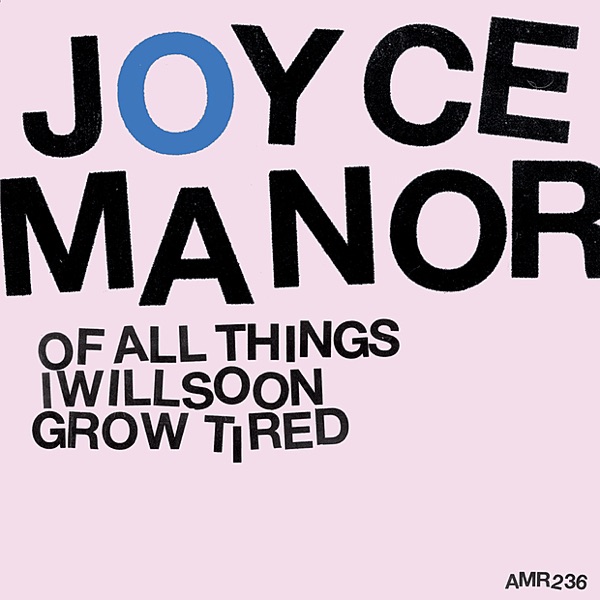
Of All Things I Will Soon Grow Tired (2012)
Of All Things I Will Soon Grow Tired is all over the place. For that reason, Barry Johnson wasn’t a fan of it. "I don't hate it, but I just think it sounds like a confused guy, because it was made by a confused guy," he once said. Yet fans love the confusion, the eccentricity, the way it feels like a sonic collage. Johnson's warbles on "These Kinds Of Ice Skates" are disarmingly sloppy: "You can't make, you can't make a mistake/ On these kind of ice skates/ You can talk, I’ll lay around." I have no clue what this dude is on about, but I feel inexplicably emotionally impacted, almost nostalgic, though I don’t know what for. The song descends into a screamy, staticky whirlwind against a repeating riff like a broken record. "Comfortable Clothes" is a jittery anthem that’s over before you can process what happened; "Drainage" feels like the prequel to Cody's "Over Before It Began," capturing an ambiguous relationship that never reaches completion: "I saw maybe something you could lust for in a tired way/ Almost like a brother laying with you in a quiet place." Its lo-fi nature makes it feel like a buggy, summer night spent in the grass looking up at the sky. That intimate moment is immediately eclipsed by the ripper "Video Killed The Radio Star." The whole album's pace is so unpredictable it's like falling on the floor in a mosh pit, catching your breath, maybe getting some water and looking around and appreciating everything on a deep level, then throwing yourself back in the cesspool of vehement bodies. Of All Things I Will Soon Grow Tired is the kind of idiosyncratic mess that bands try so hard to make, but can only be achieved by accident.
Some think Joyce Manor’s latest album is their best. That's a valid opinion; 40 Oz. To Fresno is remarkable. It contains "NBTSA," an unforgettable ripper at a little over a minute that captures the band's cosmically morbid appeal by centering on a secret that's never revealed: "I think they did something to my brain/ And I may never be the same again," is the closest Johnson gives to an answer. "You’re Not Famous Anymore" has an acerbic rock star attitude: "If life's a gift you get, then get a gift receipt/ 'Cause you're not famous anymore/ You’re working in a grocery store." The melodies are irresistible and serve as the centerpiece of most songs, though they fall flat on some tracks, like the opener "Souvenir" and lead single "Gotta Let It Go," which both come off as more derivative and lackluster than usual for this band. Luckily, "Don't Try," "Dance With Me," and "Did You Ever Know?" possess Joyce Manor's alluring singularity. Johnson had gotten into Marquee Moon after hearing Television on a jukebox at a bar, and the haunting, memorable melodies and guitar parts of that album can be heard on the far more concise 40 Oz. To Fresno, like on the off-kilter “Don’t Try," which also ends with Johnson's signature perfect one-liner, fit for T-shirts and tattoos: "Sometimes I feel so far away/ I missed you so much today." "Dance With Me" is the LP's equivalent to "Big Lie" in that every line is genius. "Yeah, we’re on a burning planet/ But upon it there is magic/ If you reach out you can grab it/ But you always seem to panic," Johnson spews in a quick flow. More brilliant lines arrive: "Look at me yelling love is free/ Then why is everybody always stealing shit from Best Buy?" "Did You Ever Know?" is a wholesome love song, but also a catchy rock anthem with exuberant guitars accompanying Johnson’s voice as he shouts, "Drinking tall cans in the park/ Hanging out till it gets dark/ Goodbye kiss, my heart explodes/ Wonder, did you ever know?" I mean, how fucking beautiful! The crazy thing, too, is that you don’t listen to Joyce Manor for the lyrics. What makes them so attention-grabbing is their uncategorizable sound — the structureless form of their songs, the inventiveness. "Secret Sister" is a rich, massive finale, that reminds us just how heavy this band can get. You can imagine it blaring through the speakers of an arena, hundreds of thousands of people headbanging to it, fists in the air.
Every song goes. Even the slow ones. Even "Do You Really Want To Not Get Better," a melancholy ballad with backing vocals from Phoebe Bridgers. Especially slow-burner and fan-favorite "Last You Heard Of Me" that showcases their skill for a rewarding payoff. Especially "Over Before It Began," a mid-tempo elegy for an almost-relationship (a “situationship,” before the term was coined), describing it in such strange ways: "Closer than a cousin/ Closer than a woman and man/ Closer than the closest thing." Anchored by a twinkling riff and intense drums, the buildup is immersive in this track too, mosh-worthy. At the time, Johnson had been getting into Sun Kil Moon, Red House Painters, and Dear Nora, which explains the batch of ballads. Really, aside from the Bridgers-featuring song, all of Cody warrants a push-pit. It’s a party from front to back, from the silly "Fake ID" to the sweet, youthful "This Song Is A Mess But So Am I." Even the more pop-leaning "Angel In The Snow" is a blast: "Like old times fading away from me/ Angel in the snow/ How come nothing amazes me?/ I don’t know" — what a fucking chorus, sung in a nursery rhyme-like melody. The victorious "Eighteen" (which, if I may brag, I saw live on my 18th birthday) bursts with immediacy, uninhibited and intoxicated off the bat: "But doesn’t it feel good/ To take off your t-shirt/ And let somebody feel ya/ Somebody steal ya." The infectious proclamation: "Just find something to do/ And then do it!" Somehow, it manages to avoid coming off as corny or forced; it just works, it comes across as both genuine and wise. So much of Joyce Manor's attitude is cynical and jaded, that when they let excitement and happiness seep through, it feels urgent and meaningful. "Make Me Dumb" is an underrated gem — brutal, nearly metallic riffs catapult the song into heavier territory than usual as Johnson spits words with certainty: "No demand/ No California/ No one to find/ To find and bore you to tears/ It took me years." The guitars are big and confident. Similarly, Johnson yells with unbridled aggression on "Reversing Machine," against caustic riffs, about getting caught tripping on LSD at college. It ends before we can find out what the fuck he’s on about, but it's such a fun minute and a half that it doesn’t matter. "Stairs," a major highlight in their discography, is four minutes long(!) It begins as an insecure love song that gets darker and darker, grappling with the way the desire to protect someone can lead to harming them. The song builds up to the bridge, when Johnson contemplates tying his lover to the bed in an attempt to keep them safe: "And I wish that I could hide you/ Some place no one could hurt you/ Where nobody could change you … Oh, the things you’d never see/ If it were up to me." In the words of Bandsplain’s Yasi Salek, goddamn gorgeous beautiful song.
A post-hardcore masterpiece and a staggering debut. Treasured as a staple of the emo revival, Joyce Manor came out in 2011, along with Balance And Composure’s Separation, Title Fight’s Shed, and Touchè Amorè’s Parting The Sea Between Brightness And Me. Still, there was an obvious distinction between Joyce Manor and these groups. Joyce Manor didn’t take themselves as seriously; they had quips, quirky song titles, short songs, weird song structures, and a sense of optimism hidden deep within the anguish. Tracks like "Beach Community," "Derailed," and "21st Dead Rats" remain some of their best material. On "Derailed," anchored by a flippant, screeching riff, Johnson asks for a train set and a hat so he can "sit alone in my room/ Sending people away from the ones they love/ Or crash them into buildings/ Explosions, derailments and screaming children." Tragedy is a plaything on Joyce Manor, like when Johnson drawls on "Beach Community," "I torch up your house while your kids are at home." "Orange Julius" is a deranged opener, a full, disorienting minute of Johnson narrating a strange scene in an intense rap: "I grab that pen beside you jam it into your eye/ See, now you’re my kind of man/ Now you’re a stand up kind of guy." Johnson once stated that the track is about “sweet, sweet revenge,” which would explain all of the violent fantasies. Yet, it ends with an unexpectedly heartwarming note, "You're a cold and quiet paradise transfixed just by your breathing/ Into the night, and you’re the one thing I don't hate/ You're a cold and quiet paradise my only true escape into the night." The guitars manage to be scrappy and clean at the same time; they’re constantly enlivened and unpredictable, entangling post-hardcore and emo and pop punk together. Almost all songs end a dramatic crashing note in a way that vaguely resembles the Strokes — a grand finale for every one- or two-minute spurt of mayhem. In a 2010 interview with Blow The Scene, Johnson discussed the lyrical themes of Joyce Manor: "Boredom, repeating the same mistakes over and over, eating too much candy, sexual depression, regular depression, 15 VHS tapes for five dollars, that sorta thing." The off-kilter imagery balanced with the visceral one-liners (such as "Everything reminds me of you" on "Beach Community" or "I hate the way I feel like dying when I’m all alone" on "Leather Jacket") is a formula for impactful, timeless rock songs. Of course, capping off the album with "Constant Headache" pushes it closer to perfection. Johnson has admitted to ripping off the melody of the Human League's "Don’t You Want Me," though you have to listen carefully to detect the resemblance of the new wave anthem in this noisy cascade. Though one of Joyce Manor’s most bewitching qualities is their discarding of typical song structures, they went with a standard structure for "Constant Headache" — first verse, chorus, second verse, chorus — and what is contained within is so powerful that it works and sounds unlike anything else. It’s rare that Joyce Manor refer directly to sex, but on the second verse, Johnson shouts, "You having sex in the morning, your love was foreign to me/ It made me think maybe human's not such a bad thing to be." For a moment, everything is uncomplicated and beautiful, only to be followed by a real gut-punch: "But I just laid there in protest, entirely fucked/ It's such a stubborn reminder one perfect night’s not enough," encapsulating the unrest of existence, the inability for anything to stay satisfactory.
Knobbe had been dating a girl who went to school in Santa Cruz; while she was in class all day, he got high and played guitar. "I knew once Chase started coming home from Santa Cruz after smoking weed and writing those crazy guitar parts that worked over my songs and made my songs more unique and interesting, I was like, ‘Oh, shit,'" Johnson explained, accrediting a lot of the appeal of Never Hungover Again to this simple factor. Never Hungover Again kicks off with a sense of mystery. "Disappear into the clouds/ I don't know what you tried to tell me/ You know I think about it still," Johnson yells on the raucous opener "Christmas Card," expressing a lingering lack of closure. "Falling In Love Again," the next track, begins with a warm, anticipatory bassline. It reverberates like the first shot of liquor sending a buzz through your body. When Johnson's shouts come in, he's relaying a crush through the most innocent, observant terms: "I think you're funny/ I like your friends/ I like the way they treat you." When, on "Schley," he sings, "It feels weird/ Like a really weird movie," though it's in the context of the dissociative feeling a stoned state can bring on, it captures the cinematic texture of the album, a short film focused on the intensity of youth, the flashes of invincibility that strike on reckless nights. Never Hungover Again is one big, cozy house party, the bass making the walls vibrate, red solo cups and joints passing from hand to hand, ambiguous glances between acquaintances and tension building with possibility. On the rapid-fire “Victoria,” a screen door gets torn off its hinges, blood swirls down the drain; "Heart Tattoo" yearns for permanence, even if what’s being made permanent is a little stupid: “I know that it looks bad/ But it’s the only one I have.” The title Never Hungover Again encapsulates the drunken delight that’s stretched out over these precious 20 minutes; it feels infinite, immortalized within these songs, a hangover not even existent in this world. At the same time, Never Hungover Again acknowledges the transient nature of it all. On the somber but triumphant "End Of The Summer," Johnson preemptively mourns the summer: "I start to feel it fade away/ There's nothing I can do," he sings over clashing guitars. It communicates a sentiment that’s at the heart of Joyce Manor: this urge to cling onto innocence and purity, while at the same time knowing it will have to be let go. Johnson’s morbid wisdoms are sprinkled throughout the album; on the wistful closer "Heated Swimming Pool," he sings, "I wish you would’ve died in high school/ So you could be someone’s idol." He’s the guy that’s always one step ahead of everybody, always thinking too much; even though he wants to hold onto his youth, he's already spiritually gone. "I always knew you'd have to go/ I always knew you’d join the army," Johnson sings on the entrancingly heavy and fast "In The Army Now," an underrated moment in their discography, a brilliantly calculated cacophony. Like Guided By Voices’ 1995 weirdo opus Alien Lanes or Pixies’ 1989 freak masterpiece Doolittle, Never Hungover Again just has it. It pulls you in, drags you under, and when you come back up for air, you’re affected. Joyce Manor are a one-of-a-kind band. Their exploration of the human condition is at once bizarre and universal; it resonates so deeply that it's tattooed on skin. Never Hungover Again finds the band at their most emotive and compelling — an incisive and intoxicating snapshot of what it means to be alive.

